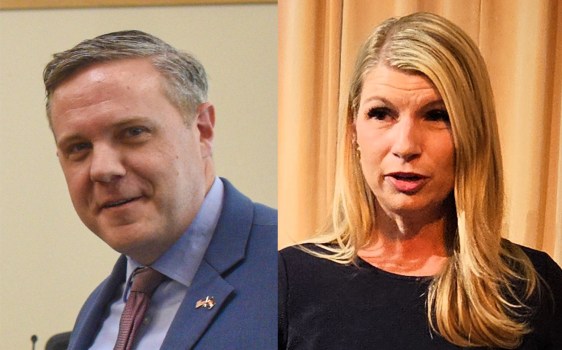Major changes to health insurance in Colorado are on the horizon, prompting the state’s congressional delegation to propose legislation aimed at lessening the potential negative impacts. The proposed bill, known as H.R. 1 or the “Big Beautiful Bill,” seeks to introduce work requirements for Medicaid recipients and increase the frequency of eligibility checks. Starting in 2027, it will also restrict states from broadening the services covered by their Medicaid programs. This legislation is expected to contribute to an increase in the number of uninsured individuals in Colorado and across the United States.
The urgency of the situation is heightened by the impending expiration of enhanced subsidies for purchasing insurance on the individual marketplace, which were initially introduced during the pandemic. These subsidies will cease on December 31, 2023, leading to significant financial repercussions. In a letter addressed to Colorado’s congressional delegation, Governor Jared Polis warned that premiums for individuals who previously benefited from these subsidies could double statewide and quadruple in certain areas, like the Western Slope and Eastern Plains.
“Colorado has done everything we can at the state level to blunt the damage of H.R. 1 and the loss of the tax credit,” the letter stated, signed by both Governor Polis and Lieutenant Governor Dianne Primavera. “Only Congress can stop these massive premium increases and the resulting loss of coverage for hundreds of thousands of hard-working Coloradans and their families.”
The state’s congressional delegation has shown a distinct partisan divide regarding H.R. 1, with all Republican members supporting the bill while Democrats have voiced their opposition. Congress is facing a packed agenda, as lawmakers must also address a government funding bill to avoid a shutdown on October 1. This urgency could complicate the legislative process, making it challenging to advance any additional bills unless they are tied to essential funding legislation.
Among the Republicans advocating for a solution is Rep. Jeff Hurd, who represents Colorado’s 3rd Congressional District. He is part of a group of ten Republicans who are sponsoring a bill to extend the expiring subsidies for one additional year. While the group emphasizes the importance of creating a sustainable plan to phase out subsidies without increasing costs for consumers, specific details on implementation remain vague.
A spokesperson for Hurd indicated that the priority is to pass the bill swiftly to avert immediate rate increases and allow time for lawmakers to devise a long-term strategy. They are considering options like gradually reducing subsidies over time or pairing any extension with measures aimed at lowering overall health insurance costs.
In contrast, Rep. Brittany Pettersen, representing Colorado’s 7th Congressional District, advocates for making the enhanced subsidies permanent to eliminate the uncertainty surrounding their annual renewal. A one-year extension, while preferable to a complete lapse, would delay any potential cost increases until after the 2026 midterm elections.
An analysis conducted by the Kaiser Family Foundation in August highlighted that failure to extend the subsidies could result in a nationwide premium increase of a median of 18%. This marks a notable rise from the previous year’s median increase of 7%.
Democratic representatives, including Pettersen, are also seeking to amend some of the more contentious provisions within H.R. 1. She plans to introduce legislation aimed at repealing the requirement that any Medicaid “waivers” must be immediately budget-neutral. Current regulations allow states to enhance their Medicaid benefits if they can demonstrate budget neutrality or long-term savings. For instance, Colorado’s existing waiver enables the state to cover inpatient care for mental health issues and addictions, which are typically not covered under Medicaid.
Providing such care may appear costly in the short term, but Pettersen emphasized that it ultimately saves lives and reduces expenses as individuals enter recovery and cease frequent emergency room visits. She remarked, “We have a long way to go to start picking apart the most harmful provisions.”
As Congress navigates this complex landscape, the impact of these health care changes will be felt widely across Colorado and beyond, making the upcoming decisions critical. The situation remains fluid, and the coming weeks will be pivotal in determining the future of health insurance coverage for countless individuals.








































































